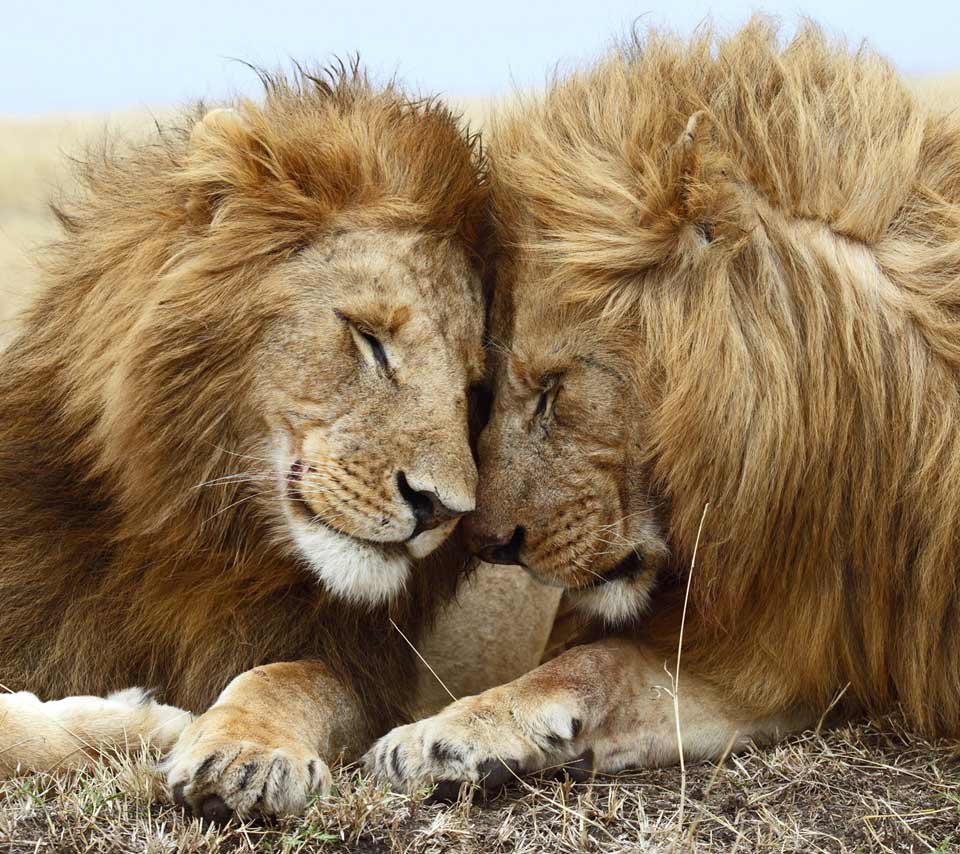One of life’s greatest joys is having a pet. They bring so much happiness, companionship and enjoyment that we can’t imagine life without them. Many Christians wonder, “Do animals have souls? Will I see my pet in heaven?”
In the past few decades, scientists have proven beyond any doubt that some species of animals possess intelligence. Porpoises and whales can communicate with other members of their species through audible language.
Dogs can be trained to do relatively complex tasks. Gorillas have even been taught to form simple sentences using sign language.
Animal rights activists point to this intelligence to claim that all creatures have equal rights to life and to certain treatment. Some activists even bristle when someone says they own a pet. They prefer the term “caretaker.”
Do Animals Have Souls?
But does animal intelligence constitute a soul? Does a pet’s emotions and ability to relate to human beings mean that animals possess an immortal spirit that will survive after death?
Theologians say no. They point out that man was created superior to animals and that animals can’t be equal with him.
Then God said, “Let us make man in our image, in our likeness, and let them rule over the fish of the sea and the birds of the air, over the livestock, over all the earth, and over all the creatures that move along the ground.” (Genesis 1:26, NIV)
Most interpreters of the Bible assume that man’s likeness to God and animals’ subservience to man implies that animals may have the “breath of life,” nephesh chay in Hebrew, but not an immortal soul in the same sense as man’s.
Later in Genesis we read that by God’s command, Adam and Eve were vegetarians. There is no mention that they ate animal flesh:
And the LORD God commanded the man, “You are free to eat from any tree in the garden, but you must not eat from the tree of the knowledge of good and evil, for when you eat of it you will surely die.” (Genesis 2:16-17, NIV)
After the flood, God gave Noah and his sons permission to kill and eat animals:
“Everything that lives and moves will be food for you. Just as I gave you the green plants, I now give you everything.” (Genesis 9:3, NIV)
In Leviticus, God instructs Moses on animals that are suitable for sacrifice:
“Speak to the Israelites and say to them: ‘When any of you brings an offering to the LORD, bring as your offering an animal from either the herd or the flock.'” (Leviticus 1:2, NIV)
Later in that chapter God includes birds as acceptable offerings and adds grains as well. Except for the consecration of all firstborn animals in Exodus 13, we do not see the sacrifice of dogs, cats, horses, mules or donkeys in the Bible. Dogs are mentioned many times in Scripture but cats are not. Perhaps that’s because they were favorite pets in Egypt and were associated with pagan religion.
God prohibited the killing of man (“You shall not murder,” Exodus 20:13) but he placed no such restriction on the killing of animals. Man is made in God’s image, so man must not kill one of his own kind. Animals, it would seem, are different from man. If they do have a “soul” that survives death, it is different from man’s. It does not need redemption. Christ died to save the souls of human beings, not animals.
Animals in Heaven
Even so, the prophet Isaiah says God will include animals in the new heavens and new earth:
“The wolf and the lamb will feed together, and the lion will eat straw like the ox, but dust will be the serpent’s food. They will neither harm nor destroy on all my holy mountain, says the LORD.” (Isaiah 65: 25, NIV)
In the last book of the Bible, Revelation, the Apostle John’s vision of heaven also included animals, showing Christ and the armies of heaven “riding on white horses.” (Revelation 19:14, NIV)
Most of us can’t picture a paradise of unspeakable beauty without flowers, trees, and animals. Would it be heaven for an avid birdwatcher if there are no birds? Would a fisherman want to spend eternity with no fish? And would it be heaven for a cowboy without horses?
While theologians may be stubborn in classifying animals’ “souls” as inferior to those of humans, those learned scholars must admit that descriptions of heaven in the Bible are sketchy at best. The Bible does not give a definitive answer on the question of whether we will see our pets in heaven, but it does say, “… with God, all things are possible.” (Matthew 19:26, NIV)
My Cairn Terrier, Charlie, is an important part of my life and I often feel he is a gift God has given me. You probably feel the same way about your pet.
That’s why I like the story about the elderly widow whose beloved little dog died after fifteen faithful years. Distraught, she went to her pastor.
“Parson,” she said, tears streaming down her cheeks, “the vicar said animals have no souls. My darling little dog Fluffy has died. Does that mean I won’t see her again in heaven?”
“Madam,” said the old priest, “God, in his great love and wisdom has created heaven to be a place of perfect happiness. I am sure that if you need your little dog to complete your happiness, you will find her there.”
Jack Zavada, a career writer and contributor for About.com, is host to a Christian website for singles. Never married, Jack feels that the hard-won lessons he has learned may help other Christian singles make sense of their lives. His articles and ebooks offer great hope and encouragement. To contact him or for more information, visit Jack’s Bio Page.






Comments